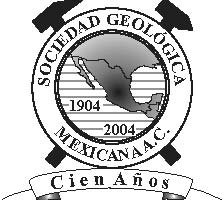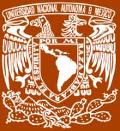|
BOLETÍN DE LA SOCIEDAD GEOLÓGICA MEXICANA TOMO 59, NÚM:. 2, 2007, p. 163-169 http://dx.doi.org/10.18268/BSGM2007v59n2a2 |
|
Entorno a la problemática del recurso agua ante los megaproyectos de transporte. Estudio de caso Zona Metropolitana de la Ciudad de Querétaro
Rebeca Granados-Ramírez1,*, Alma Villaseñor-Franco2,**
1 Departamento de Geografía Física, Instituto de Geografía, Universidad Nacional Autónoma de México, México, D.F. C. P. 04510, México.
2 Unidad Académica de Ciencias de la Tierra. Universidad Autónoma de Guerrero, Domicilio conocido, Taxco, Guerrero.
* This email address is being protected from spambots. You need JavaScript enabled to view it.
** This email address is being protected from spambots. You need JavaScript enabled to view it.
Abstract
Water is considered a renewable resource. Nevertheless, its overexploitation (when supplied to cities, for human, industrial and agricultural consumption), as well as its pollution, result in a high demand for this product, thus becoming a strategic resource. In the process of globalization, diverse investment programs are created, such as big transportation projects, which lead to further urbanization and the construction of new roads and industrial areas. This impacts the environment by increasing the demand for water, and in other different ways as well.
The City of Queretaro is a strategic location where important routes of communication converge. This generates a considerable amount of traffic of passengers and freight, from the north, west and south of the territory. One of the projects that will strongly hit this city is named “Great Vision”. These big transportation projects typically modify cities’ normal course of growth, thus increasing the demand for natural resources, including water. One of the most complex challenges that Mexico and its federal entities face is the
urgent necessity to adopt schemes of sustainable exploitation of this highly-valued resource. Under this perspective, the main goal of this paper is to emphasize the role that the City of Queretaro plays in current big transportation projects, in the importance of coordinating transportation works with urbanization development and, in turn, with the impact in natural resources. In addition, it describes the current situation where big projects have been undertaken by the City of Queretaro, the current and historical growth of urban areas, and the future demand for water, a direct consequence of the implementation of these projects.
Keywords: renewable resource, Queretaro, strategic location, demand, resource water.


